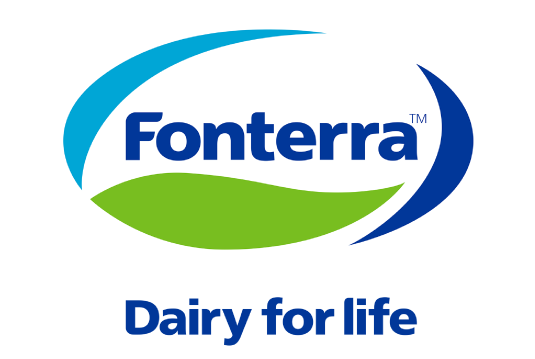Commemorating World Environment Day, Fonterra Strengthens Its Commitment to Plastic Waste Recycling
The volume of waste in Indonesia remains a pressing concern. According to data from the Ministry of Environment, Indonesia generates approximately 64 million tons of waste each year. Alarmingly, only around 10–15% of this waste is successfully recycled. Meanwhile, 60–70% ends up in landfills, and 15–30% remains unmanaged[1]. World Environment Day, observed on 5 June, has motivated Fonterra Indonesia to accelerate its sustainable solutions to address Indonesia’s waste management challenges. Marking this occasion, Fonterra Indonesia—a producer of high-quality dairy products—reaffirms its commitment to recycling as much waste as possible from its operations.
In 2023, Fonterra Indonesia successfully reduced its waste footprint in a form of multilayer plastics by 30% by recycling 100 metric tons of materials—the equivalent of 37 truckloads of waste. This commitment was further strengthened in 2024, with total waste reduction reaching 50% and 250 metric tons recycled, equivalent to 110 truckloads. By 2026, Fonterra aims to recycle 350 metric tons of waste, the equivalent of 150 truckloads.
Achieving this mission requires a collaborative approach across industries. To this end, Fonterra has partnered with the Indonesia Packaging Recovery Organization (IPRO), a non-profit, voluntary, and independent organization that is professionally managed and focused on improving the collection and recycling of post-consumer packaging. The collaboration is made possible through a program dedicated to the collection and processing of post-consumer packaging waste made of multilayer plastic (MLP) material which is often difficult to recycle. Through this initiative, Fonterra supports the collection, processing, and recycling of MLP waste—such as sachet packaging—into raw materials like plastic pellets, which can then be used to produce tarpaulins, buckets, and other household items. The program also involves local waste management partners and community members, particularly women’s groups, through education on waste separation at the source.
Agus Rusly, S.PI., M.Si, Director of Waste Reduction and Circular Economy Development at the Ministry of Environment (KLH), stated, “We welcome Fonterra’s efforts in supporting Indonesia’s waste reduction targets. The government, through Presidential Regulation (Perpres) No. 12 of 2025, has set a target to process 51% of total waste by the end of 2025 and reach 100% by 2029. Initiatives like Fonterra’s play such a helpful role in helping to achieve these targets—particularly in managing hard-to-recycle waste such as multilayer plastic, while also empowering communities and promoting the development of an inclusive circular economy.”
“Fonterra is one of our industry partners that has consistently demonstrated a genuine commitment to managing its post-consumer packaging waste. We believe that collaborations like this are essential to building a sustainable and inclusive waste management system in Indonesia—especially when the initiative also empowers communities, particularly women, to actively engage in the recycling process from end to end. Such initiatives are crucial for strengthening the infrastructure for collecting post-consumer packaging waste through educational activities, so that the waste can be properly sorted and easier to recycle.” said Reza Andreanto, General Manager, Indonesia Packaging Recovery Organization.
Multilayer plastic waste, once considered low-value and difficult to recycle, now holds new value. Through this program, the post-consumer packaging waste is processed into flakes that can be utilized by the recycling industry. This initiative not only reduces the amount of waste ending up in landfills and minimizes the environmental impact of conventional disposal methods but also creates opportunities for local communities by providing additional income through waste collection.
M. Ali Nasution, Operational Director Fonterra Brands Indonesia, explained, “Our focus is on managing hard-to-recycle post-consumer packaging waste while also creating new opportunities for local communities. Our goal is to recycle up to 350 metric tons by 2026, while actively involving the community in the process—part of our broader contribution to advancing an inclusive and sustainable circular economy in Indonesia.”
Fonterra’s sustainability efforts also extend to other areas of its operations. At its production facility in Cikarang, the company has installed solar panels that now supply 37% of the factory’s total energy consumption, helping to reduce greenhouse gas emissions. A rainwater harvesting system has also been implemented to improve water efficiency, successfully cutting water usage by over 45% at the facility. In addition, 98% of the waste generated by the facility has been effectively managed through a recycling process. These commitments have been officially recognized through the Green Industry Certification awarded by the Ministry of Industry of the Republic of Indonesia.
In line with the spirit of World Environment Day, Fonterra believes that a sustainable future can only be achieved through collaboration and concrete action. By continuing to drive innovation in waste management, strengthening strategic partnerships, and empowering local communities, Fonterra is committed to achieving its goal of becoming net zero by 2050. The company recognizes that being part of long-term solutions to create a cleaner, healthier, and more sustainable environment for future generations in Indonesia is key to realizing this vision.
Reference:
[1] Wastec International. “Fenomena Sampah di Indonesia: Tantangan Dan Solusi Untuk Keberlanjutan Lingkungan.” Wastec International, diakses 20 Mei 2025.

